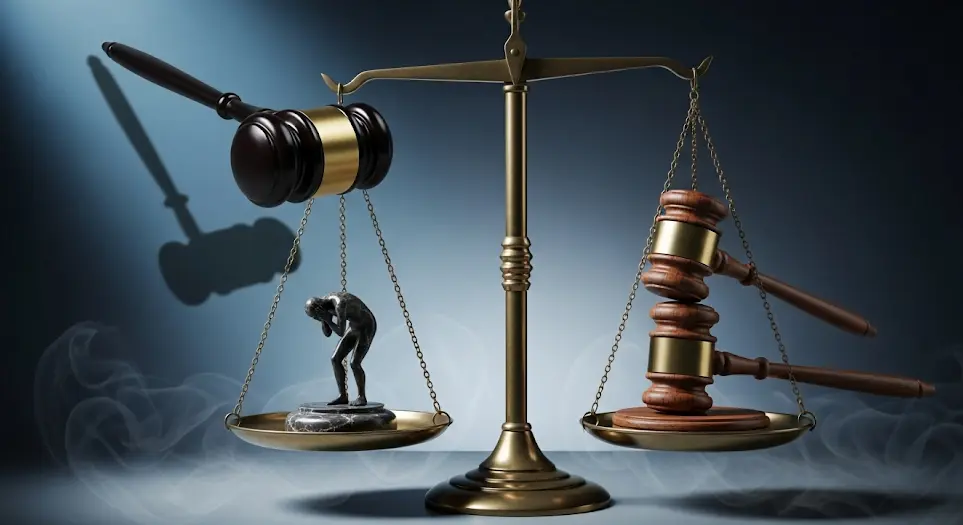What Is Double Jeopardy?

Introduction
Double jeopardy is a legal principle in the United States that protects individuals from being prosecuted more than once for the same offense. It’s a safeguard built into the U.S. Constitution to ensure fairness and prevent the government from repeatedly trying a person until they secure a conviction.
Plain Definition
Double jeopardy means that once a person has been acquitted or convicted of a particular crime, they cannot be tried again for that exact same offense in the same jurisdiction. This protection is found in the Fifth Amendment to the U.S. Constitution, which states that no one shall “be subject for the same offence to be twice put in jeopardy of life or limb.”
Real-Life Examples
- Acquittal: If a defendant is found not guilty of burglary, the state cannot retry them for that burglary based on the same facts.
- Conviction: If someone is convicted of assault, they can’t be prosecuted again for that same incident.
- Mistrial exception: If a trial ends in a mistrial due to a hung jury, a retrial is allowed because jeopardy hasn’t fully ended.
- Different jurisdiction exception: A state and the federal government can both prosecute a defendant for the same act if it violates both state and federal laws (known as the “dual sovereignty” doctrine).
Importance of the Term
Double jeopardy is crucial for:
- Preventing harassment: Stops prosecutors from repeatedly targeting an individual for the same act.
- Promoting finality: Once a verdict is reached, the case is considered resolved.
- Protecting resources: Avoids wasting time and taxpayer money on redundant trials.
- Upholding constitutional rights: Reinforces the balance between government power and individual liberty.
Comparison (Double Jeopardy vs. Retrial)
| Factor | Double Jeopardy | Retrial |
|---|---|---|
| Definition | Protects against being tried twice for the same offense | A new trial for the same case under certain legal conditions |
| Allowed? | No, except under limited exceptions | Yes, in cases like mistrials or successful appeals |
| Goal | Prevent unfair repeated prosecution | Correct legal errors or complete unfinished trials |
FAQ
1) Does double jeopardy apply if new evidence appears?
Generally, no retrial is allowed, even if new evidence is found, once a person has been acquitted.
2) Can you face both state and federal charges for the same act?
Yes, under the dual sovereignty doctrine, because they are considered separate offenses under different laws.
3) Does double jeopardy apply to civil cases?
No, it only applies to criminal prosecutions.
4) Does it apply in plea bargains?
Once a plea deal is accepted and judgment entered, the government cannot bring the same criminal charge again.
5) Can double jeopardy protections be waived?
In rare cases, defendants may waive certain protections, but it usually requires a knowing and voluntary decision.
Closing
Double jeopardy is a powerful constitutional protection that ensures people are not subjected to endless prosecutions for the same act. It reinforces fairness, finality, and trust in the justice system.






